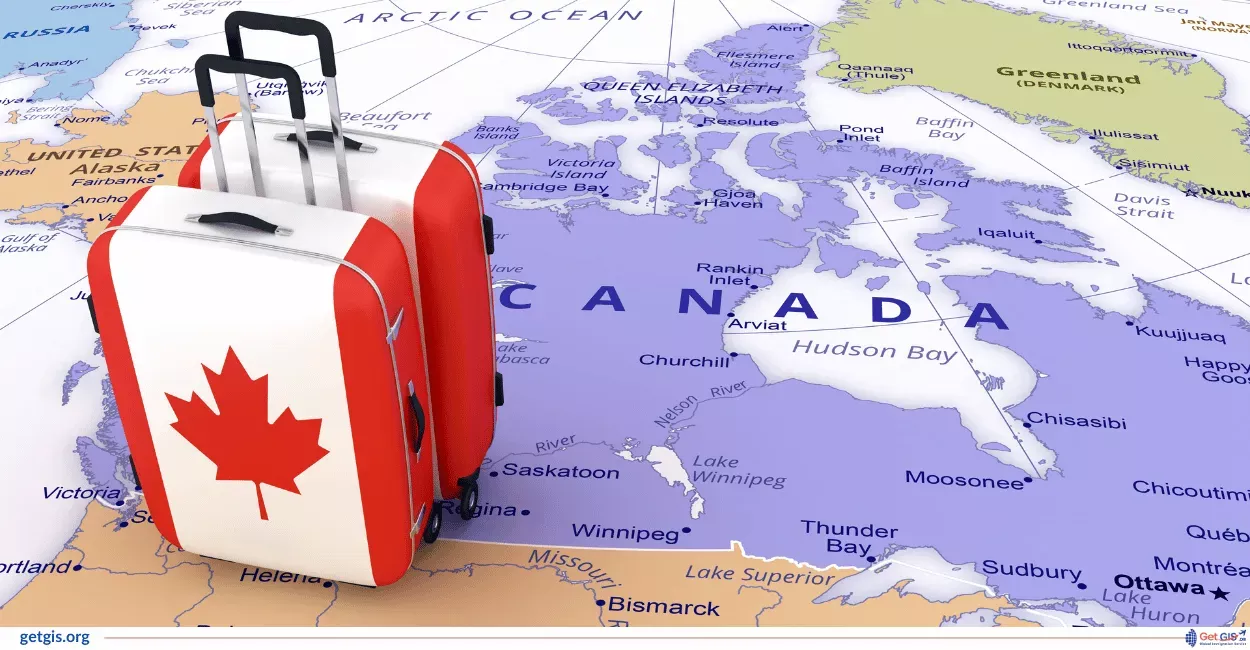What is the Average Spousal Sponsorship Processing Time in Canada?
As of 2025, the average spousal sponsorship Canada processing time is approximately 10 to 14 months, depending on the application type, completeness, and applicant’s location. Here’s a quick breakdown:
- Outland Applications: Typically processed faster, averaging 10–12 months
- Inland Applications: Slightly longer at around 12–14 months
However, these timelines are subject to change based on IRCC workload, application completeness, and background checks.
IRCC’s official portal provides an online processing time tool, allowing applicants to check updated estimates by category and country.
Understanding Spousal Sponsorship in Canada
Canada’s spousal sponsorship program is part of the Family Class immigration system, which helps reunite close family members. Under this initiative, a Canadian citizen or permanent resident can sponsor their spouse or common-law partner to obtain permanent residence (PR).
The program is managed by Immigration, Refugees and Citizenship Canada (IRCC). It requires both the sponsor and the applicant to meet specific eligibility criteria, including relationship authenticity, financial stability, and admissibility to Canada.
Seeking guidance from a Canadian spousal sponsorship lawyer at this early stage can ensure your application starts off on the right foot, with a fully compliant and complete package that aligns with IRCC expectations.
Sponsorship applications can be processed through two main streams: Inland Sponsorship (when the spouse is already in Canada) and Outland Sponsorship (when the spouse is outside Canada). Each pathway has unique timelines, processing stages, and potential delays.
Inland vs Outland Spousal Sponsorship
Key Differences in Application Streams
| Feature | Inland Sponsorship | Outland Sponsorship |
| Applicant location | Inside Canada | Outside Canada |
| Can work while waiting? | Yes, with Open Work Permit | No |
| Processing Time (2025) | 12–14 months | 10–12 months |
| Travel restrictions | Cannot leave Canada while in process | Can travel freely |
| Appeals available? | No | Yes |
Each route has pros and cons. Inland applications allow couples to live together in Canada during processing but limit travel. Outland allows travel and appeal rights but requires the applicant to be outside Canada.
Key Factors That Affect Sponsorship Processing Times
Several variables can affect how long a sponsorship application takes:
- Application Completeness: Missing documents can lead to returned or delayed files.
- Type of Sponsorship: Inland vs Outland stream, relationship proof, and complexity.
- Biometrics and Medical Exams: Waiting for appointments or results slows down timelines.
- Security & Background Checks: Required for all applicants; any flags can extend reviews.
- IRCC Workload: Processing delays may arise during high-volume periods or due to backlogs.
How Long Does It Take to Get Sponsorship Approval?
Spousal sponsorship involves two main stages:
- Sponsorship Approval – 2 to 4 months
The IRCC evaluates the Canadian sponsor’s eligibility.
- Permanent Residence Processing – 8 to 10 months
Once the sponsor is approved, IRCC processes the spouse’s PR application.
The total can range from 10 to 14 months, but timelines may stretch due to interviews, medicals, or security clearance.
What Are the Official IRCC Processing Times in 2025?
IRCC updates processing times regularly on its official page. As of 2025, these are the posted estimates:
- Spouse living inside Canada (Inland): 13 months
- Spouse living outside Canada (Outland): 11 months
These times can vary depending on the applicant’s country of residence and background processing requirements.
How to Check Your Spousal Sponsorship Application Status?
Applicants and sponsors can check their status through:
- IRCC Portal (MyCIC): Login to your IRCC account to see real-time updates.
- GCMS Notes: A detailed report showing officer comments and progress.
- IRCC Webform or Phone Line: Use for inquiries or status requests.
Statuses like “Application Received,” “In Process,” and “Decision Made” give insight into where your file stands.
Continuing the article from where we left off:
What Causes Delays in Spousal Sponsorship Processing?
While IRCC aims to process most spousal sponsorship applications within a year, several common issues can result in delays:
1. Incomplete Documentation
One of the most frequent causes of delays is submitting an incomplete file. Missing essential forms, identity documents, or proof of relationship leads to processing stalls or even application returns.
2. Security and Criminal Background Checks
Every applicant must undergo background screening. If IRCC detects potential concerns (e.g., past convictions, immigration violations), it can trigger additional scrutiny, lengthening the timeline.
3. Biometrics and Medical Exam Scheduling
Applicants must attend biometrics appointments and complete medical exams. If these steps are not completed promptly or require additional testing, it may significantly affect processing speed.
4. IRCC Request for More Information
Officers may request additional evidence or schedule interviews to confirm relationship genuineness. Responding late to these requests can add months of delay.
5. Application Transfers
Sometimes, applications are transferred between IRCC offices (e.g., from Mississauga to a visa office abroad), which can increase wait times, especially if the receiving office is experiencing a backlog.
How to Avoid Common Delays in Your Application?
Avoiding preventable errors can help ensure your spousal sponsorship application progresses as quickly as possible.
1. Submit a Complete Application
Carefully follow the IRCC checklist. Include all necessary forms, civil documents, relationship proof, and translations where applicable.
2. Complete Upfront Medicals and Biometrics
If permitted, complete your medical examination and biometrics early in the process to avoid waiting for IRCC to request them.
3. Respond Promptly to IRCC Requests
Always monitor your email and MyCIC account for communications. Timely responses prevent files from going inactive or being returned.
4. Double-Check All Forms
Ensure all forms are signed, correctly filled out, and use the most current versions. IRCC often updates its forms, and outdated ones can invalidate your application.
Biometrics, Background Checks, and Medical Exams
These three checkpoints are non-negotiable for every applicant and directly impact processing times.
Biometrics
Applicants provide fingerprints and photographs. IRCC generally processes biometrics within a few weeks, but appointment delays may occur in busy regions.
Background Checks
These ensure the applicant has no serious criminality or security threats. Depending on the applicant’s history and countries of residence, this can range from a few weeks to several months.
Medical Exams
The IRCC panel physician sends results directly to IRCC. Most applicants are cleared quickly unless follow-ups or specialist assessments are required.
How IRCC Prioritizes Spousal Sponsorship Cases?
IRCC occasionally expedites certain sponsorship applications based on:
- Humanitarian and compassionate grounds
- Military families
- Health or safety concerns
- Backlog clearing strategies
That said, most applications are processed in the order they are received unless flagged for special attention.
Impact of COVID-19 and Backlogs on 2025 Timelines
Although IRCC made strides to recover from the pandemic-era delays, residual backlogs from 2020–2022 still influence processing times. Temporary closures, limited staff, and suspended interviews created a ripple effect, especially in high-volume visa offices.
As of early 2025, IRCC has implemented digital processing, AI-based triage, and case tracking improvements to reduce delays. However, visa offices in some countries still report longer-than-average processing times.
Role of Immigration Consultants and Lawyers
Immigration professionals can significantly improve your application’s accuracy and completeness. Consider hiring an RCIC (Regulated Canadian Immigration Consultant) or immigration lawyer if:
- You’ve been previously refused
- You have complex family or criminal history
- You need help gathering documentation
- You want legal representation during appeals or interviews
If you’re located in Ontario, partnering with a spousal sponsorship lawyer Toronto residents trust can help navigate local considerations and provide in-person consultation, increasing the confidence and quality of your submission.
Tips for Speeding Up Your Spousal Sponsorship Application
To streamline your path to permanent residence:
- Use the IRCC Document Checklist precisely.
- Include a detailed relationship timeline (photos, chat records, travel proof).
- Submit police certificates from all countries lived in (over 6 months).
- Track your file with GCMS notes if delayed beyond normal estimates.
- File online, not by paper, when possible – it reduces mailing and transcription lags.
Common Myths About Sponsorship Timelines
Let’s clear up some misconceptions:
| Myth | Reality |
| “Outland applications are always faster.” | Not always. Some inland cases finish quickly with Open Work Permit benefits. |
| “Adding more documents speeds up processing.” | No. Quality matters more than quantity. Stick to IRCC’s checklist. |
| “Hiring a lawyer guarantees faster approval.” | A lawyer improves file quality, but can’t alter IRCC’s timeline. |
| “Calling IRCC often speeds things up.” | It doesn’t. Use GCMS notes if needed. |
FAQs About Spousal Sponsorship Canada Processing Time
1. How long does spousal sponsorship take in Canada in 2025?
It takes approximately 10–14 months, depending on whether it’s an inland or outland application and the specific circumstances of the applicant.
2. How do I check my sponsorship application status?
Use your IRCC MyCIC account, the IRCC webform, or request GCMS notes for detailed updates.
3. Can I work while waiting for my inland application to be processed?
Yes. Inland applicants can apply for an Open Work Permit, usually issued within a few months of submission.
4. What if I forgot to include a document?
IRCC may return your file or request it via email. This can delay the process by weeks or months, depending on response speed.
5. Are interviews common in spousal sponsorship cases?
Not usually. IRCC schedules interviews if it doubts the authenticity of the relationship or finds conflicting information.
6. Does hiring an immigration consultant guarantee success?
No, but it greatly improves accuracy, reduces errors, and strengthens the presentation of your case.
Conclusion
Spousal Sponsorship Canada Processing Time in 2025 varies based on application type, background checks, medicals, and the completeness of the file. While IRCC aims to process most applications within a year, proactive steps—like submitting a thorough application and checking your MyCIC portal regularly—can help avoid delays.
For complex or time-sensitive cases, consider hiring a qualified immigration professional. And always use IRCC’s official tools for the most accurate updates.































